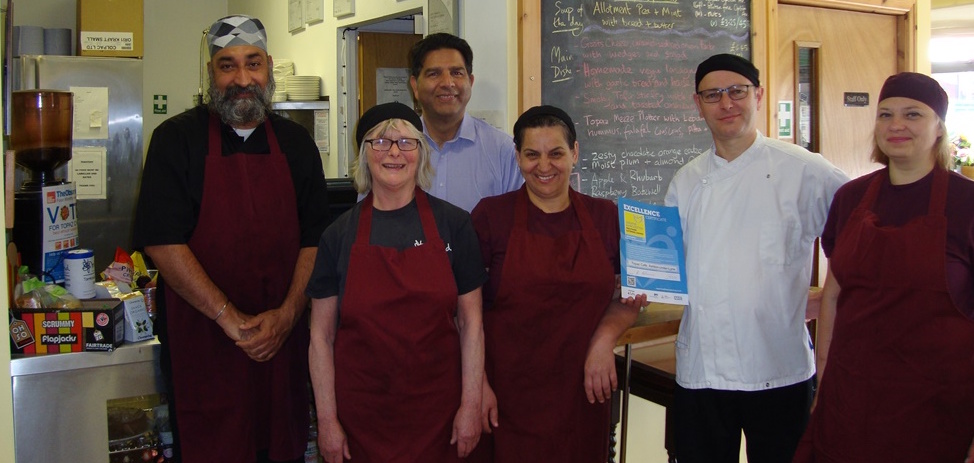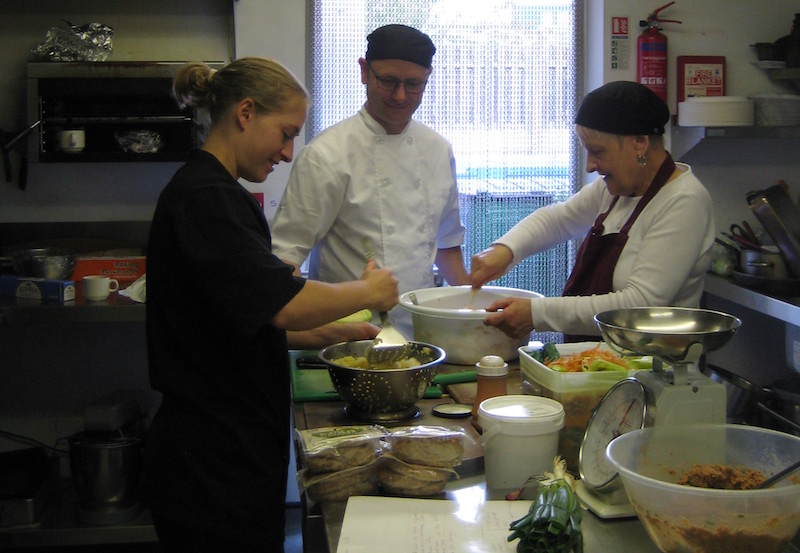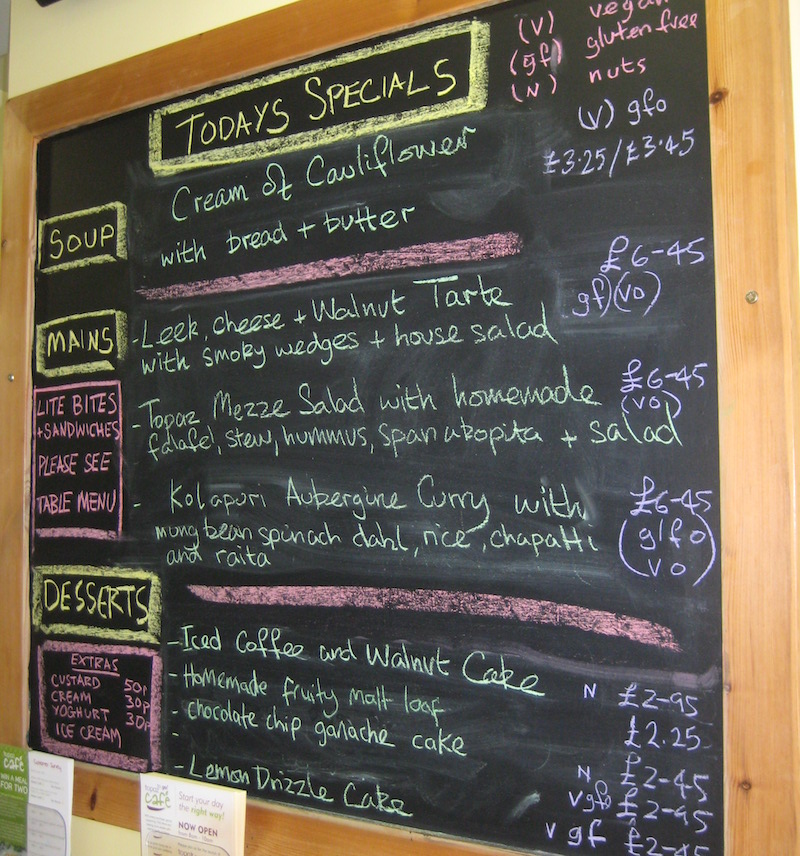We all know it's true: when you eat well, you feel good. We also know there’s a link between mental health and poverty, and vice versa, part of which can be explained by the effect of hunger and poor diet on mental wellbeing. Altogether, they form a vicious spiral which affects the wellbeing and economic chances of millions of people.
In fact, the UK-based mental health charity MIND report that 1 in 4 people will need support throughout their lifetime to deal with issues including depression. In Greater Manchester, the local MIND centre has adopted a holistic approach to poverty, diet and mental ill health, making a vegetarian café called Topaz an integrated part of their service. Its aim is to break down the stigma of mental ill health, and offer everyone who comes in a warm welcome and some nutritious food.
Head chef, Kevin Taylor, has spent the last eight years building up the business. I spoke to him about their approach.
What’s the big idea?
“We’re a social enterprise and our ethos is to promote the café as a model of good quality food, based on principles of fair trade and affordability. We want to make people think that they can have a meal without meat, and benefit themselves and the environment.”
How do you do that?
“We source most of our food locally. MIND runs several allotments, staffed by volunteers that produce our fruit and vegetables. Our cafe is run by three paid staff and 15 volunteers. But we offer training in cooking and food service to people who come from a variety of backgrounds, including adults with learning disabilities and people in recovery from mental illnesses.”
What are the benefits to the volunteers?
“It’s free labor for MIND, but the benefits for the volunteers are significant too. It does reduce the isolation that many people experience, and gives people skills that can help them get back into paid work.”
The average meal costs £5. How is that economical for MIND?
“We’re subsidized, but we do aim to break even and we’re not far off that. Usually businesses operate on a model of a third each of ingredients, labor and profits, and we’re trying to get to that level. But we’re not based in the town centre, and on our present footfall we couldn’t survive as an independent café.”
Your ethos is one of affordability, fair trade and recycling. How does that work in practice?
“Topaz is a café that makes food from good quality ingredients. We source products from FairTrade and organic producers, and recycle as much as we can. We want to prove, and feel we do, that people can have a meal without meat, which can only benefit the environment.”
Recently you joined up with FareShare, an organisation set up to recycle good food destined for waste and send it to charities and community groups that provide healthy meals for vulnerable people, how does this benefit Topaz?
“Although we do get plenty of fruit and vegetables from our allotments, it’s not enough to supply us with the amount we need for the café. Through our link with FareShare we’ll be able to offer, not just fruit and vegetables, but also dry goods, including rice. It will save us money, but also it’s part of our ethos to challenge the food industry - and the massive scale of waste that’s part of the way in which supermarkets dump food that doesn’t fit their criteria for use in stores or is deemed as out-of-date.”
Is Topaz a café just for local people?
“No, we have visitors from across the region who enjoy the food and ambience of the café. Nationally, we’ve been runner-up for the Observer Food Awards for the last five years. This is voted for by the public, and is an indicator of the support we have from the many people who visit us on a regular basis.”
And what does the future hold for Topaz?
“Looking back, it’s good to see how people’s attitudes to vegetarianism has changed, and how it’s become more mainstream. You can see this in the number of people who now use our café. A recent report by the World Health Organisation showed that livestock production is responsible for more greenhouse emissions than cars, which is a sobering thought. Topaz is not about converting people to vegetarianism, but I hope it shows people that they can eat healthy, affordable meals without meat which are good for them and the environment.”
Check out the rest of Economy Explores: Food






